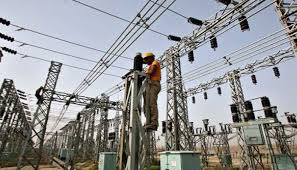The Federal Government has announced plans to clear N2tn out of the N4tn debt owed to electricity generation companies (Gencos) by the end of 2025, in a bid to stave off a potential nationwide blackout.
Minister of Power, Adebayo Adelabu, made this known on Thursday during the sixth edition of the 2025 Ministerial Press Briefing Series in Abuja. He revealed that the payment would be made through a combination of cash disbursements and promissory notes.
This intervention follows a recent warning by the Gencos, operating under the Association of Power Generation Companies, threatening to shut down operations over the growing debt burden and what they described as “inadequate payment for electricity generated and consumed.”
“These debts are unpaid subsidies due to the power-generating companies. Almost half of it was inherited, while the remaining was accumulated during 2024,” Adelabu said.
He disclosed that ongoing discussions with the Minister of Finance and Coordinating Minister of the Economy, Wale Edun, have resulted in a payment framework expected to deliver up to N2tn in relief by December.
According to Adelabu, promissory notes offered to the Gencos will be structured to be bankable and liquid enough to enable the companies access funds quickly through discounting.
“We’re working on budgetary releases for cash payment, while promissory notes will be issued simultaneously. This way, the Gencos can either get their cash or liquidate the notes through banks,” he explained.
The minister confirmed that the liquidity crisis facing the sector stemmed from Nigeria’s longstanding electricity subsidy model, which has left the government to bear the shortfall between cost-reflective tariffs and actual payments made by consumers.
He said, “The average cost of power generation is about N170 per kilowatt-hour, but 85 per cent of customers are still paying only N60. That’s a 65 per cent subsidy still in place.”
Despite a recent tariff hike for Band A customers—who enjoy up to 20 hours of electricity daily—Adelabu said the market had only achieved a 35 per cent reduction in subsidy exposure.
He argued that the reforms were necessary to sustain the sector, attract new investment, and ensure only low-income, low-consumption users benefit from government support.
“We’re not eliminating subsidies but restructuring them. Previously, high-consuming households benefited the most. Now we’re targeting those who truly need it,” he said.
On service delivery, Adelabu warned that any distribution company (DisCo) that fails to meet the mandated 20-hour daily supply for Band A customers would face penalties.
“We are not on the side of the companies — we are on the side of Nigerians. But we must face the reality that energy, like food, is expensive everywhere in the world,” the minister said, responding to public backlash over recent tariff adjustments.
He noted that despite the discomfort, the reforms have already begun yielding results, with the market revenue increasing from N1tn in 2023 to N1.7tn in 2024—a 70 per cent jump attributed to the cost-reflective tariff regime.
“This shows that financial viability and service delivery can coexist,” he concluded.
Do you want to share a story with us? Do you want to advertise with us? Do you need publicity for a product, service, or event? Contact us on WhatsApp +2348183319097 Email: platformtimes@gmail.com
We are committed to impactful investigative journalism for human interest and social justice. Your donation will help us tell more stories. Kindly donate any amount HERE




